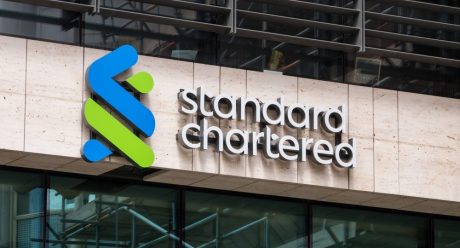In this article, Rachel Luk reviews a recent decision in a case concerning four claims by 230 claimants alleging that Standard Chartered made misleading and untrue statements in published information relating to compliance failures including non-compliance with US sanctions against Iran.
In Various Claimants v Standard Chartered PLC [2023] EWHC 2756 (Ch), the court ruled on applications made by the defendant (Standard Chartered) to strike out or for reverse summary judgment on parts of the claimants’ claim and for the claimants to provide further information of their case.
The claimants’ claims against the bank are brought under sections 90 and 90A (and Schedule 10A) of the Financial Services and Markets Act 2000 (“FSMA”) for compensation relating to securities acquired by the claimants between February 2007 and April 2019.
The strike-out and/or reverse summary judgment application
The application was made in relation to the following three parts of the claim (set out further below):
- ‘Brutus allegations’.
- Allegations that there were persons discharging managerial responsibility (PDMRs) in Standard Chartered plc who knew or were reckless as to the alleged bribery scheme in Maxpower Group PTE (which was approximately 47% owned by the Standard Chartered Group) (‘PDMRs and the Maxpower allegations’).
- ‘The claimants’ individual reliance claims’.
The claimants’ counsel highlighted to the court relevant legal principles, including that it would not be appropriate to strike out a statement of case in an area of developing jurisprudence or for the court to conduct a mini-trial to resolve evidential conflicts on a summary judgment application. Counsel also said the court should hesitate to make a decision where there are reasonable grounds for believing further investigation of the facts would affect the evidence available at trial and, therefore, the outcome of the case.
It was also noted there may be an information imbalance at this pre-disclosure stage as the bulk of the facts naturally lie within the defendant’s knowledge but that this is subject to procedural safeguards such as the strict professional obligations on counsel. These obligations require counsel to plead their case based on a “solid foundation in the evidence” as opposed to “speculation and inference”.
The defendant’s counsel reminded the court of the need to properly plead a case of fraud or dishonesty and the requirement to have a sufficient evidential basis to plead a speculative case.
Brutus allegations
These are allegations (which the defendant denies) made in US proceedings that the defendant misled the US authorities during their investigations by failing to disclose further sanctions violations that had happened outside the time period that had previously been investigated.
The defendant’s counsel submitted that the claimants’ case on the Brutus allegations had not been sufficiently particularised and that the claimants should have sought to verify the allegations.
In siding with the claimants, the judge considered the claim to be adequately particularised. He could not see any inference that the defendant had struggled to understand the case either in its Amended Defence or in the wording of the Agreed Case Memorandum, particularly in the absence of any reservation of the right to apply for strike-out or request for further information on the allegations. The judge added that if he were to agree with the defendant that the claimants should verify the underlying evidence, this would unattractively result in a potential requirement to disclose confidential and privileged information.
On the question of whether the claimants had sufficient evidence to plead the fraud/dishonesty allegations, the judge did not require further information of how the claimants verified those allegations. He noted that the fact that the statement of truth had been signed acted as a substantial procedural safeguard. It was also clear that the allegations were founded on statements made by former bank employees under oath in the US that had been proven valid.
Accordingly, the judge dismissed the application in relation to the Brutus allegations.
PDMRs and the Maxpower allegations
The defendant sought to strike out the claim that PDMRs knew of/acted dishonestly in relation to allegations that Maxpower had engaged in a scheme to bribe government officials to win contracts or other advantages (known as the “Bribery Scheme”).
The PDMRs identified by the claimants consisted of the “Group Executive” and four Standard Chartered Group employees who were also non-executive directors of Maxpower.
- The Group Executive
The defendant’s counsel submitted that knowledge could not be attributed to the Group Executive as it is unclear who this group consisted of and that the plea of knowledge/dishonesty was inadequate in relation to those individual PDMRs. The judge agreed with the claimants that the plea had been adequately pleaded on the basis that the group consisted of either actual or de facto directors as they were actual directors of the bank or members of the Group Management Committee.
- The Maxpower non-executive directors
The judge considered the allegations against the individual PDMRs sufficiently pleaded, having been directed to supporting materials such as press articles and whistleblower or investigative reports. The judge also accepted the submission that the employment of the defendant’s founding members could not have been terminated without knowledge and that the mere fact that the reports were commissioned implied the existence of knowledge and would have led to some form of action being taken by the group employees.
The claimants sought to establish that the Maxpower non-executive directors are PDMRs of the defendant bank. The claimants stated that they required further information and disclosure to plead the allegations properly, that de facto directorship under s90A FSMA could be seen as a novel legal principle for development and that the underlying Bribery Scheme fact would be investigated at disclosure and trial in any event. This meant that a strike-out here would not save much time or by way of costs.
The judge found the claimant counsel’s submissions persuasive but elected to follow the decision in Allianz Global Investors GmbH & Ors v G4S Ltd [2022] EWHC 1081 (Ch) (which determined that the definition of a PDMR of an issuer should mirror that in company law and may only include actual and de facto directors (and potentially shadow directors)). He agreed with the defendant’s counsel that the non-executive Maxpower directors could not be PDMRs within the G4S meaning. Accordingly, there was no real prospect of this aspect of the claim succeeding. However, it is still open to the claimants to apply to amend their case at a later point if they were to plead more substance to the allegations.
The claimants’ individual reliance claims
The defendant’s counsel submitted that the claimants’ reliance claims have no basis. Counsel alleged that the claimants had not been asked prior to service of particulars whether they had relied on any published information, representation and/or omissions. Therefore, this could not have been verified by a statement of truth.
Despite the fact that drafting further particulars on standing to sue and individual reliance would be an extremely time-consuming task, the judge was surprised that there was still no progress. He noted that the reliance issues would likely be tried in a second trial and possibly by reference to a sample of claimants but that in order to begin the sampling process, more information on reliance was required.
Although the judge agreed that the reliance plea was general, he dismissed the application as the claimants had agreed to provide further information on the claims prior to the hearing. Also, their solicitors had confirmed they had the necessary authority from the claimants to plead the matters of reliance.
Application by the defendant for further information under part 18 of the Civil Procedure Rules
The judge considered the application in the context of each of the four areas:
- Standing.
- Reliance.
- Loss
- Knowledge of senior management.
As mentioned above, the claimants had agreed to provide further information on standing, reliance and loss. The remaining issues were timing and the extent of the information to be provided.
- Standing
The parties disagreed on the deadline for the provision of information. The defendant requested a deadline of 30 October 2023, saying that the information had been long overdue. In support of a 15 December 2023 deadline, the claimants’ counsel argued in response that collating the particulars of standing and supporting documentary evidence had been voluminous and complex. As a wait would cause no prejudice to the defendant, the judge ordered that the claimants provide the particulars by the latter date to give effect to a realistic timetable and ensure the information provided would be satisfactory.
- Reliance
The issues between the parties related to the amount of information requested by way of questionnaire and the time by which it was to be provided.
The defendant had proposed questionnaires requesting further information on reliance particulars through various questions and sub-questions. The claimants disputed these on the basis that this approach would be disproportionately costly. The claimants’ solicitors sent out amended questionnaires omitting the sub-questions. They asserted that the information received in response to that amended questionnaire would be sufficient to start the sampling process and the further sub-questions may then be asked of those selected for sampling.
Given the costs and time that would need to be spent on the original questionnaire, the judge considered the amended questionnaire proportionate. He reiterated that the timetable should be realistic, ordering a deadline of 31 January 2024.
- Loss
Having already agreed to provide the requested further information on loss, the remaining issue between the parties was the deadline for the provision of that information.
Noting that quantum would be tried in a second trial, it was clear that the information would not be required immediately. However, the judge was conscious of the role the information would play in settlement negotiations and ordered that the further information be provided by 29 February 2024, in line with the claimants’ proposal.
- Knowledge of senior management
The claimants’ counsel asserted that they could not particularise this plea further before disclosure but that it should be satisfactory that the knowledge of its senior management could be attributed to the defendant.
Given that the claimants were unable to provide further information without disclosure, the judge saw no benefit in ordering them to do so, particularly as a hearing on disclosure issues has been listed for the near future.
Conclusion
- The strike-out/summary judgment applications were dismissed, apart from the allegation that the four non-executive directors of Maxpower were PDMRs in the defendant bank.
- The part 18 application for information in relation to standing, reliance and loss was ordered to be provided by staggered deadlines.
- The judge refused to order the claimants to provide further information under the part 18 application on the knowledge of senior management representations.
This judgment serves as a reminder that although it is established that claims must be sufficiently particularised, this must be against the backdrop of proportionality and considered with the realities of how quickly a case can progress.
You can find further information regarding our expertise, experience and team on our Securities Litigation page.
If you require assistance from our team, please contact us.
Subscribe – In order to receive our news straight to your inbox, subscribe here. Our newsletters are sent no more than once a month.







